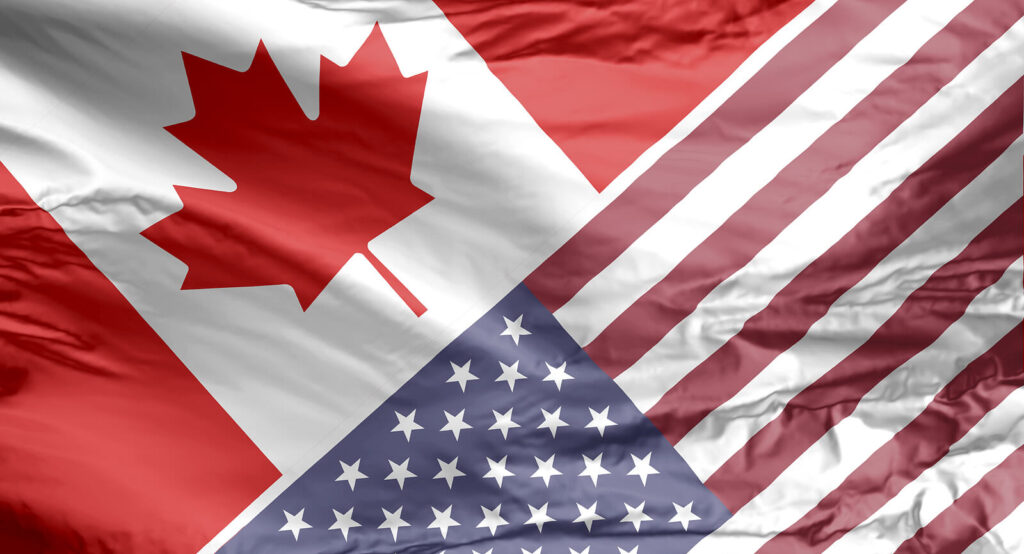President Biden today heads to Canada for his first official visit to our neighboring ally. The White House wants to focus on advancing initiatives related to climate change, immigration and countering the ever-growing threat from China. But this trip faces a unique set of national security circumstances that could send things off the rails for President Biden.
Here are three dynamics coming to a head that could hijack the Biden administration’s hopes of sharing its carefully crafted messages with the American and Canadian people.
1) Ukraine discussions – is China attempting to broker peace or deliver lethal aid?
Chinese President Xi was in Moscow, Russia this week for high-profile meetings with President Putin. President Xi was reportedly seeking a conversation with Ukrainian President Zeylensky, although that has yet to be confirmed. Though their words ring shallow, it appears the Chinese Communist Party (CCP) was attempting to play a role in a peace deal between Russia and Ukraine, which could have been a huge achievement for China – especially on the heels of the announcement about Iran and Saudi Arabia diplomatic normalization and China’s role as mediator.
While it is highly unlikely a peace deal will be brokered at any point by the CCP, these aptly timed conversations for China could spur an interesting dynamic between the Americans and Canadians regarding aid to Ukraine, depending on what trickles out of this week’s in-person meetings in the coming days. For example, we could learn that China did in fact agree to deliver lethal aid to Russia as part of their “no limits” relationship. Russia has been asking for drones and ammunition, and should China have promised this in Moscow, the Biden administration will be pressured to make good on its threats of consequences.
With both Biden and Prime Minister Trudeau dealing with heat from their respective opposition parties to limit aid to the Ukrainians, neither wants to spend the entire trip responding to any agreements Xi and Putin decide to share or focus solely on Ukraine funding, which would give opposition leaders a focal point.
2) Canada’s regulation of U.S. tech companies
While we all know U.S. tech companies are far from perfect, Canada’s Parliament is taking an overly aggressive approach to regulation that will make it harder for these companies to invest in emerging technologies that the West desperately needs to face the growing threat from China. Specifically, the Parliament’s pursuit of the Online News Act and the Online Streaming Act, as well as digital services taxes, is problematic and wrong-headed. These bills would unfairly discriminate against U.S. companies, with the U.S. Embassy in Ottawa raising these concerns.
Having foreign governments adopt onerous regulations against U.S. business at this complicated and contentious time in the relationship with China will most assuredly invite the CCP to make even more aggressive moves. Beijing understands that emerging technology will decisively shape tomorrow’s economy, military and way of life and that these innovations are overwhelmingly being developed in the private sector.
President Biden and senior U.S. government officials understand this, and if Canada pursues the proposed legislation, it will force a response during this trip that could get awfully uncomfortable for both sides. This conflict between neighbors creates the kind of awkward conflict that the media loves and could derail any hope of positive messaging wins.
3) North Korea rearing its ugly head
Over the course of the last week, the U.S. and South Korea have been conducting ongoing joint military operations – the largest exercises in the last five years. While the allies view these drills as defensive, North Korea contends the drills are “frantic war preparations” and, as of this writing, has reportedly already fired two cruise missiles from a submarine in response. While it is imperative from a military standpoint that these drills occur after years of scaling them back or canceling them in an effort to pursue diplomatic efforts to denuclearize North Korea, the increased tensions could cause an unwelcome diversion from Biden’s visit.
North Korea will continue to try to disproportionately demonstrate it has capabilities that keep up with its enemy on the other side of the demilitarized zone. Any action by them this week that escalates tensions would certainly force Biden to shift his focus from Canada to neutralizing the North Korea threat.
In the lead-up to a trip like this, the White House and 24 Sussex are busily preparing proactive messaging wins for both countries’ domestic audiences. As with any official visit, leaders want to demonstrate that they can deliver on the things they are promising, rally partnerships to tackle tough problems and build better relationships.
But you know what they say about best laid plans.







